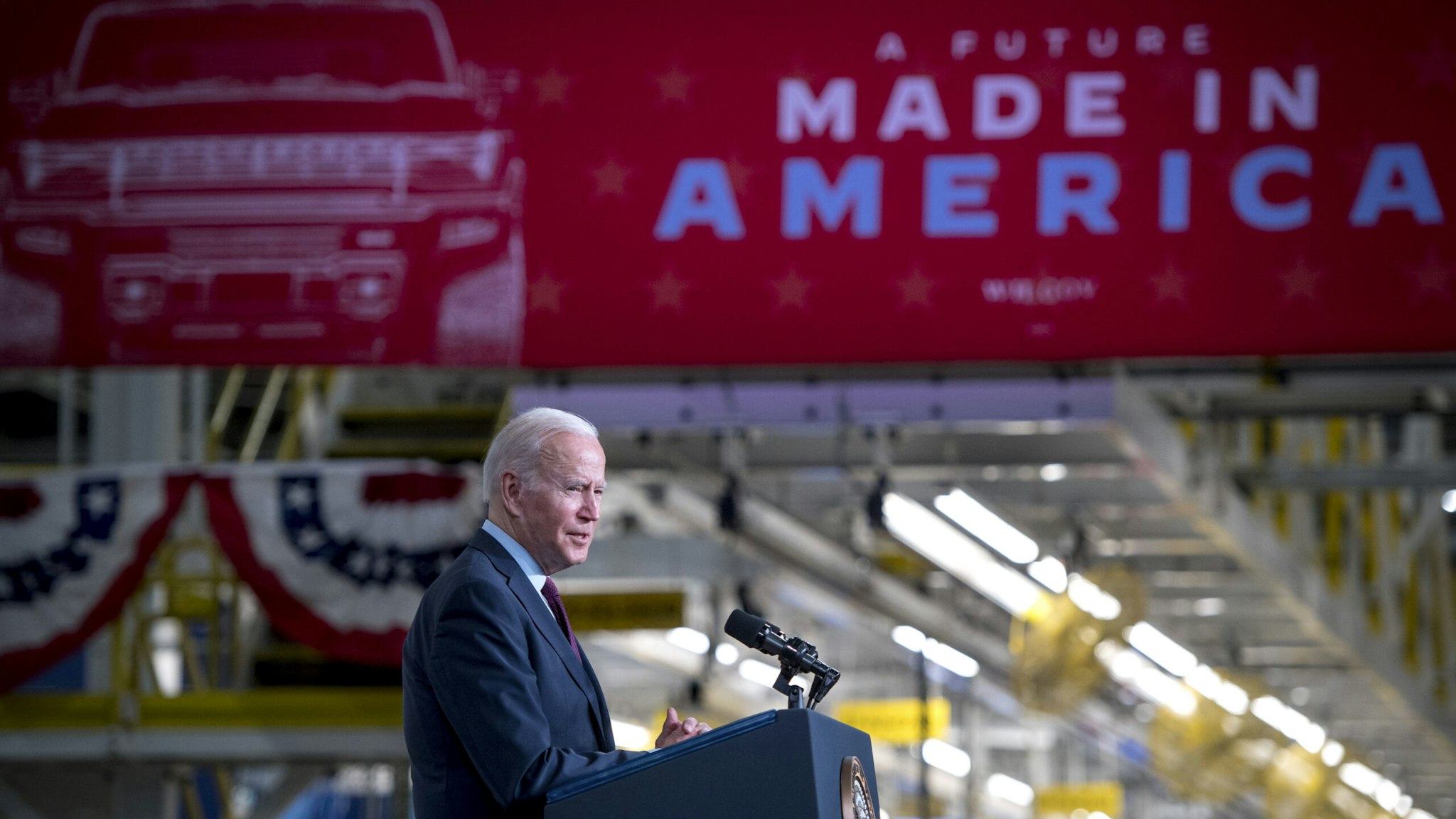As the Democrats force Americans to go green, automakers are going even greener. Ford and General Motors unveiled price increases for their electric vehicle lineups as the Inflation Reduction Act — which includes electric vehicle tax credits — is slated to become law.
Citing “significant material cost increases and other factors,” Ford’s announcement revealed price hikes between $6,000 and $8,500 for its electric vehicles. The F-150 Lightning Pro, for example, will sell for $46,974 — a $7,000 increase from the $39,947 charged for last year’s model. GM likewise increased the cost of its electric Hummer by $6,250 last month.
The price hikes are comparable to the $7,500 tax credits for new electric vehicles included in the $740 billion Inflation Reduction Act, which currently awaits President Joe Biden’s signature. The legislation earmarks a total of $369 billion to combat “the existential crisis of climate change,” according to remarks from Biden.
“It addresses the climate crisis and strengthens our energy security, creating jobs manufacturing solar panels, wind turbines, and electric vehicles in America with American workers,” he said. “It lowers families’ energy costs by hundreds of dollars each year.”
The price hikes appear to upend repeated assertions from the White House that electric vehicle tax credits — combined with elevated prices at the pump — will accelerate renewable energy adoption in the United States. “The more pain we are all experiencing from the high price of gas, the more benefit there is for those who can access electric vehicles,” Transportation Secretary Pete Buttigieg argued before House Transportation and Infrastructure Committee members last month.
The national average price of gasoline was $2.38 per gallon when Biden assumed office, according to the Energy Information Administration, and increased to $3.53 per gallon by the start of the Russian invasion of Ukraine. Prices surpassed $5.00 per gallon in early June before subsiding to $3.96 per gallon as of Monday, according to AAA.
Yet Buttigieg claimed in November that Americans who buy electric vehicles will “never have to worry about gas prices again.”
“The people who stand to benefit most from owning an EV are often rural residents who have the most distances to drive, who burn the most gas, and underserved urban residents in areas where there are higher gas prices and lower income,” Buttigieg said during an MSNBC interview. “They would gain the most by having that vehicle. These are the very residents who have not always been connected to electric vehicles that are viewed as kind of a luxury item.”
A study from economists at the University of Pennsylvania’s Wharton School discovered that the Inflation Reduction Act would “very slightly increase inflation” over the next two years and “decrease inflation thereafter,” with both estimates “statistically indistinguishable from zero, thereby indicating low confidence that the legislation will have any impact on inflation” despite its high price tag.
The Inflation Reduction Act will also provide $80 billion to hire 87,000 new Internal Revenue Service employees. In a letter to IRS Commissioner Charles Rettig, Treasury Secretary Janet Yellen vowed that the funding would help the agency “improve taxpayer service” and “increase equity in the tax system” rather than allow the agency to target middle-income Americans.

